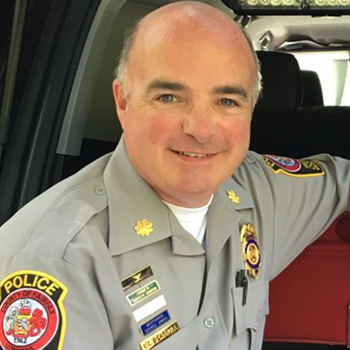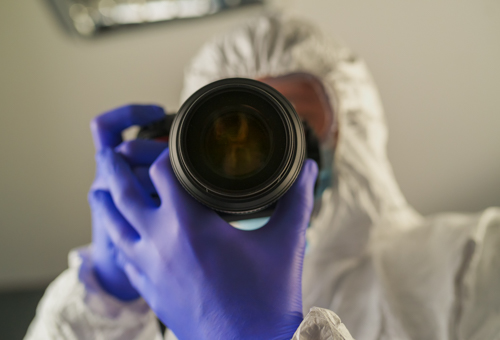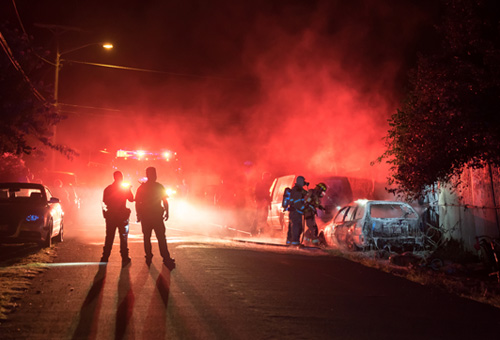

NCJTC offices will be closed December 24 - January 2 in observance of the upcoming holidays. We will be back to serve you in the new year on Monday, January 5, 2026. For information concerning continuing education units, please view our **[policies](https://ncjtc.fvtc.edu/policies#continuingeducation)** page.

October 28-29, 2024 | Provo, UT
Access to this content requires approval.
Please watch your email inbox () for further instructions. You can expect to receive information regarding access within 1 business day.
Please watch your email inbox () for further instructions. You can expect to receive information regarding access within 1 business day.
You must add an organization to your profile before you can access this content.

October 28-29, 2024 | Provo, UT
Explore and discuss the application of Forensic Genetic Genealogy (FGG) and the ways it aids in investigations. Techniques instructed will include tips in using genealogy to help establish the identities of cold case suspects and assist with identifying human remains. Instruction is provided by experienced investigators who have gained expert knowledge in their application of forensic genetic genealogy through real-life cases. Discuss topics including forensic genealogy techniques and investigative strategies for developing leads and information, as well as working with private labs and other related resources.
Access to this content requires approval.
Please watch your email inbox () for further instructions. You can expect to receive information regarding access within 1 business day.
Please watch your email inbox () for further instructions. You can expect to receive information regarding access within 1 business day.
You must add an organization to your profile before you can access this content.
Training Schedule: October 28, 2024 | 8:30 am - 4:30 pm October 29, 2024 | 8:30 am - 4:30 pm **For information concerning continuing education units, please view our [policies](ncjtc.fvtc.edu/policies#continuingeducation) page.**
Upon completion of this training, you will be able to: * Discuss forensic genetic genealogy (FGG), history, and evolution * Consider practical applications of FGG in case studies * Explore private and public laboratory resources available to investigators * Consider and apply investigative techniques through practical applications/scenarios **Past participants had this to say..** *"Amazing class!! I am not completely new to genetic genealogy in case work but I learned so much!! I have been empowered to try analyzing data myself for a case that we have not had success on. I also have a ton of resources that I can share with my partner and active homicide team. Thank you for the knowledge, resources and encouragement!!!!"* *"This is absolutely cutting edge in violent crime investigation and the trend of the future."* *"I learned a great deal on what it will take to further investigate a violent case where there is a suitable DNA profile. The case profiles where it showed the breakdown of how the case progressed was very interesting. Overall I certainly took some things away from the course that can be useful working!"*
* Medical examiners * Lab technicians * Law Enforcement * Prosecutors
Provo Police Department Police Training Room – 3rd Floor 445 West Center Street Provo, UT 84601
Baymont by Wyndham 2230 North University Parkway Provo, UT 84604 Hyatt Place Provo 180 W 100 N Provo, UT 84601 Provo Marriott Hotel & Conference Center 101 W 100 N Provo, UT 84601 Residence Inn Provo South University 1290 South University Avenue Provo, UT 84601
The registration fee includes 16 hours of training, program materials, and instructional costs. Participants are responsible for costs and arrangements related to meals, travel, and lodging.

Ed O’Carroll began his public service career as an Emergency Medical Technician and Assistant Chief with an ambulance squad in Suffolk County, New York. Relocating to Virginia as a young adult, Ed joined the Fairfax County Police Department on September 11, 1989. He retired as a major/bureau chief in 2023, concluding a distinguished career of nearly 34 years. Throughout his tenure, Major (ret.) O’Carroll held every rank from cadet to major. His final role was as the Bureau Chief of Major Crimes, Cyber, and Forensics, where he led investigations into criminal and violent crimes, managed victim services, search and rescue operations, the crime analyst team, human trafficking cases, missing persons, and the Language Services Support Unit. In retirement, Ed has had the honor of leading numerous training sessions for the National Criminal Justice Training Center. He remains dedicated to advancing the use of technology in law enforcement to tackle unresolved cases.
Ed O’Carroll began his public service career as an Emergency Medical Technician and Assistant Chief with an ambulance squad in Suffolk County, New York. Relocating to Virginia as a young adult, Ed joined the Fairfax County Police Department on September 11, 1989. He retired as a major/bureau chief in 2023, concluding a distinguished career of nearly 34 years. Throughout his tenure, Major (ret.) O’Carroll held every rank from cadet to major. His final role was as the Bureau Chief of Major Crimes, Cyber, and Forensics, where he led investigations into criminal and violent crimes, managed victim services, search and rescue operations, the crime analyst team, human trafficking cases, missing persons, and the Language Services Support Unit. In retirement, Ed has had the honor of leading numerous training sessions for the National Criminal Justice Training Center. He remains dedicated to advancing the use of technology in law enforcement to tackle unresolved cases.
 Classroom
Classroom
 Classroom
Classroom
 Classroom
Classroom
 Classroom
Classroom
 Classroom
Classroom
 Classroom
Classroom
 Classroom
Classroom
 Classroom
Classroom
 Classroom
Classroom
 Classroom
Classroom
 Classroom
Classroom
 Classroom
Classroom
Sent successfully.
Our dedicated NCJTC staff will contact you within 2 business days of receipt of this request to discuss your needs and how we can help. We appreciate your interest in our training programs and look forward to serving you.
For questions, contact us at (855) 866-2582 or at info@ncjtc.org.
CloseError
If the problem persists contact us at (855) 866-2582 or send your information to info@ncjtc.org.
Go back to request

Presented by: Jessica Koong, QIAGEN
Presented by: Melissa Kraker, CBI

A hold has been placed on your account, which is preventing you from registering for this training. Please contact us at info@ncjtc.org or call us at 855-866-2582.

